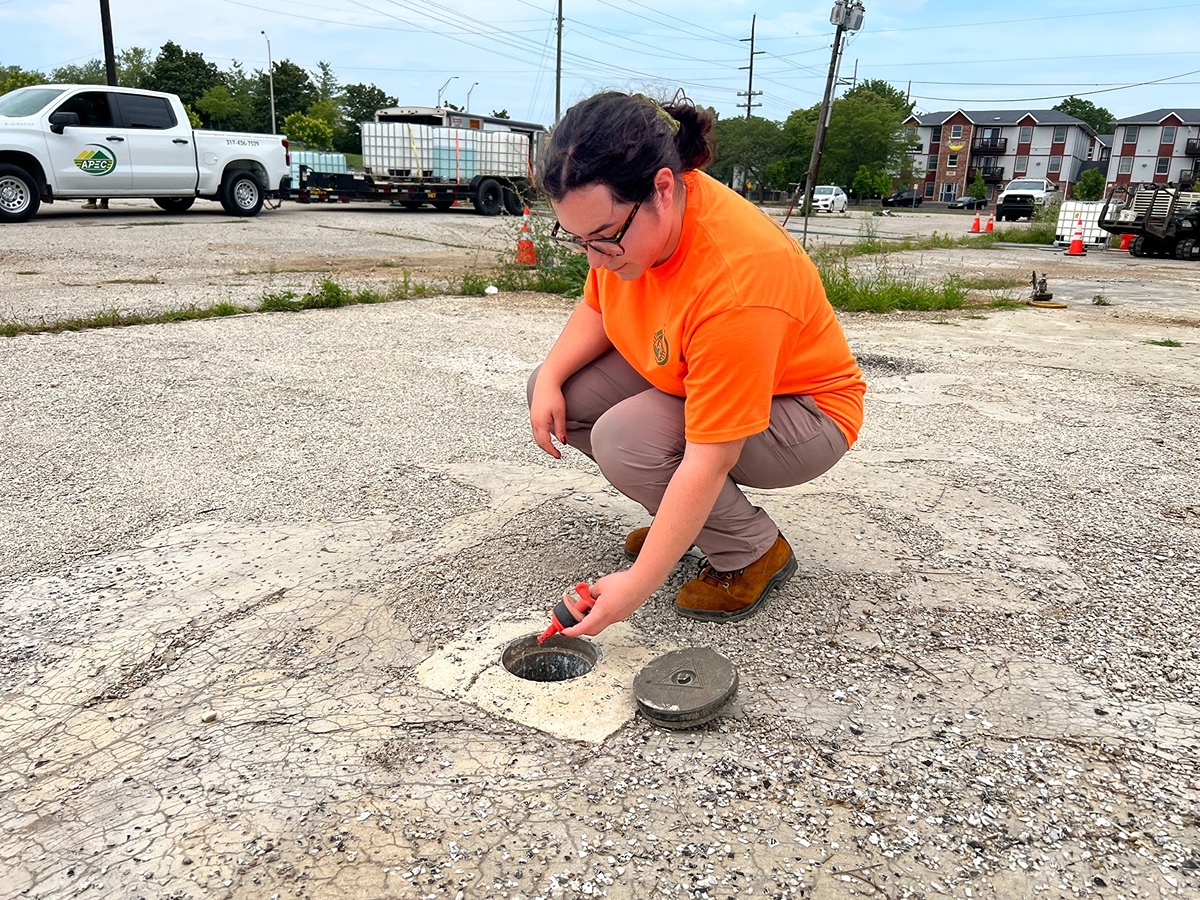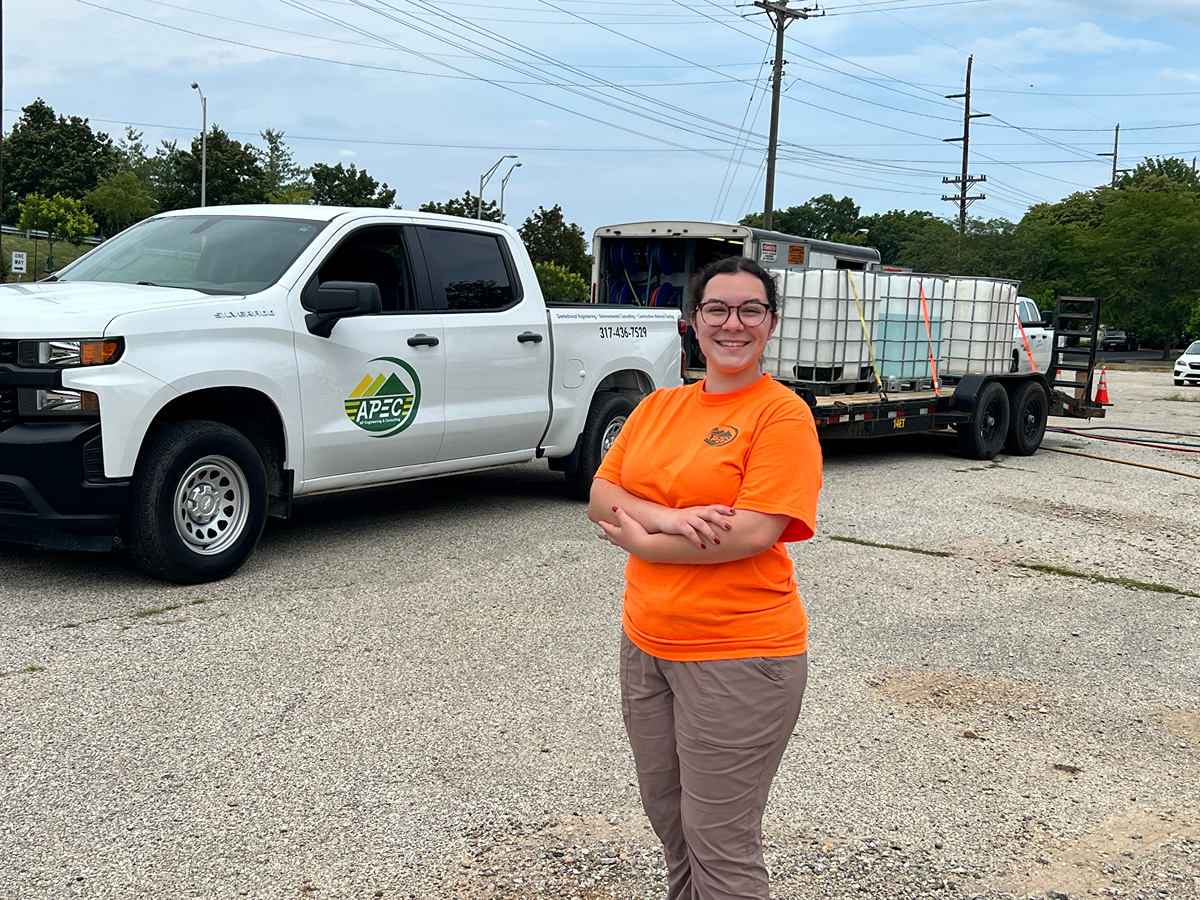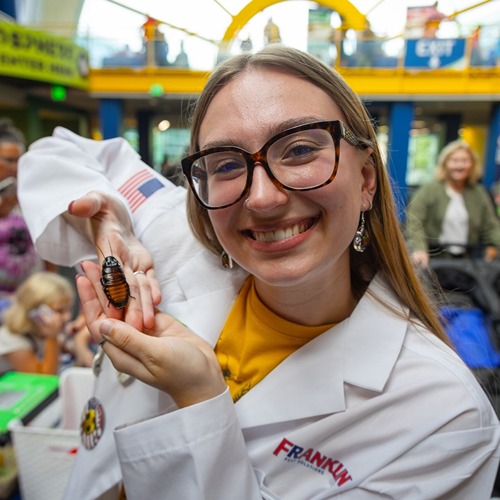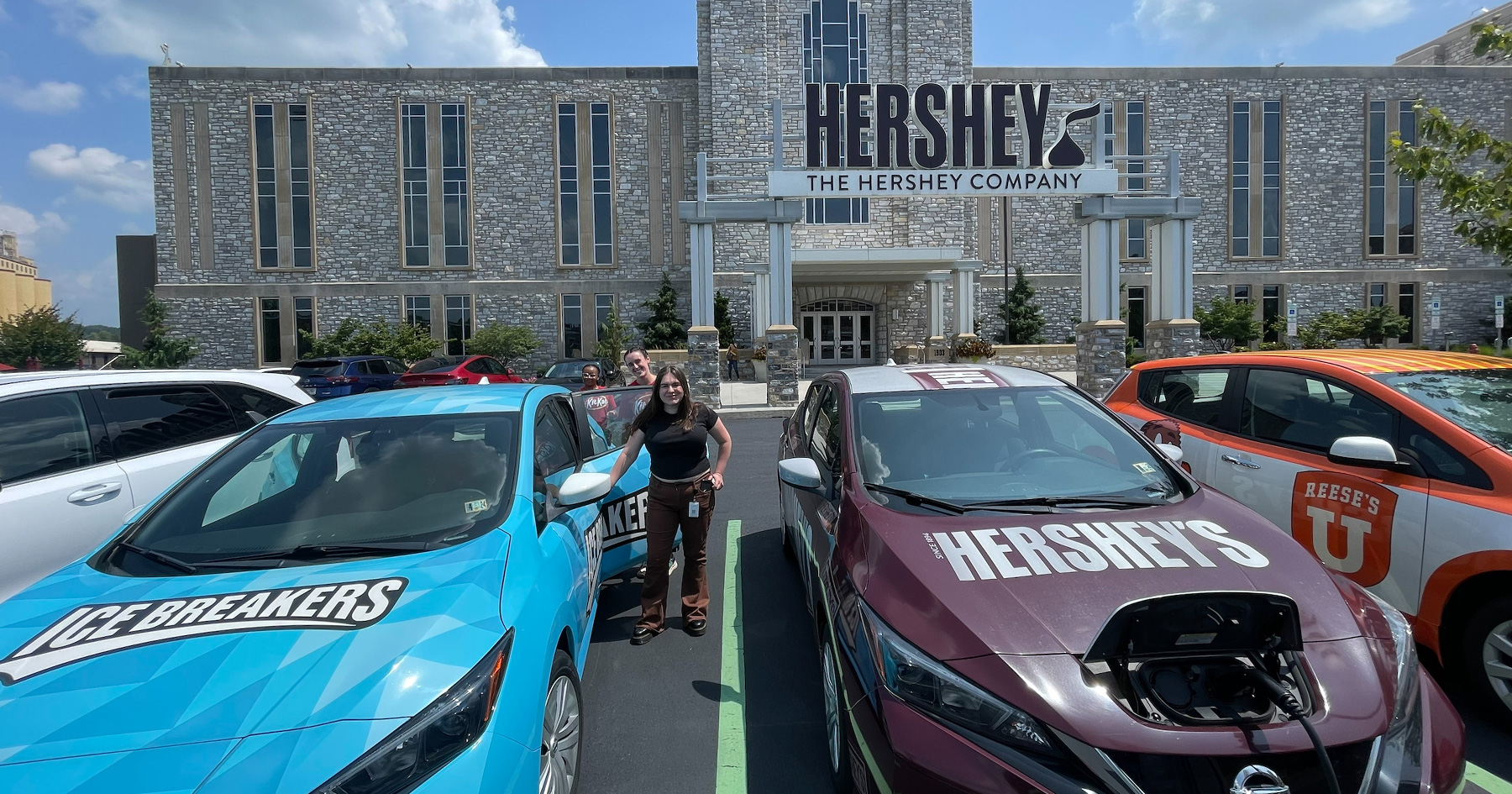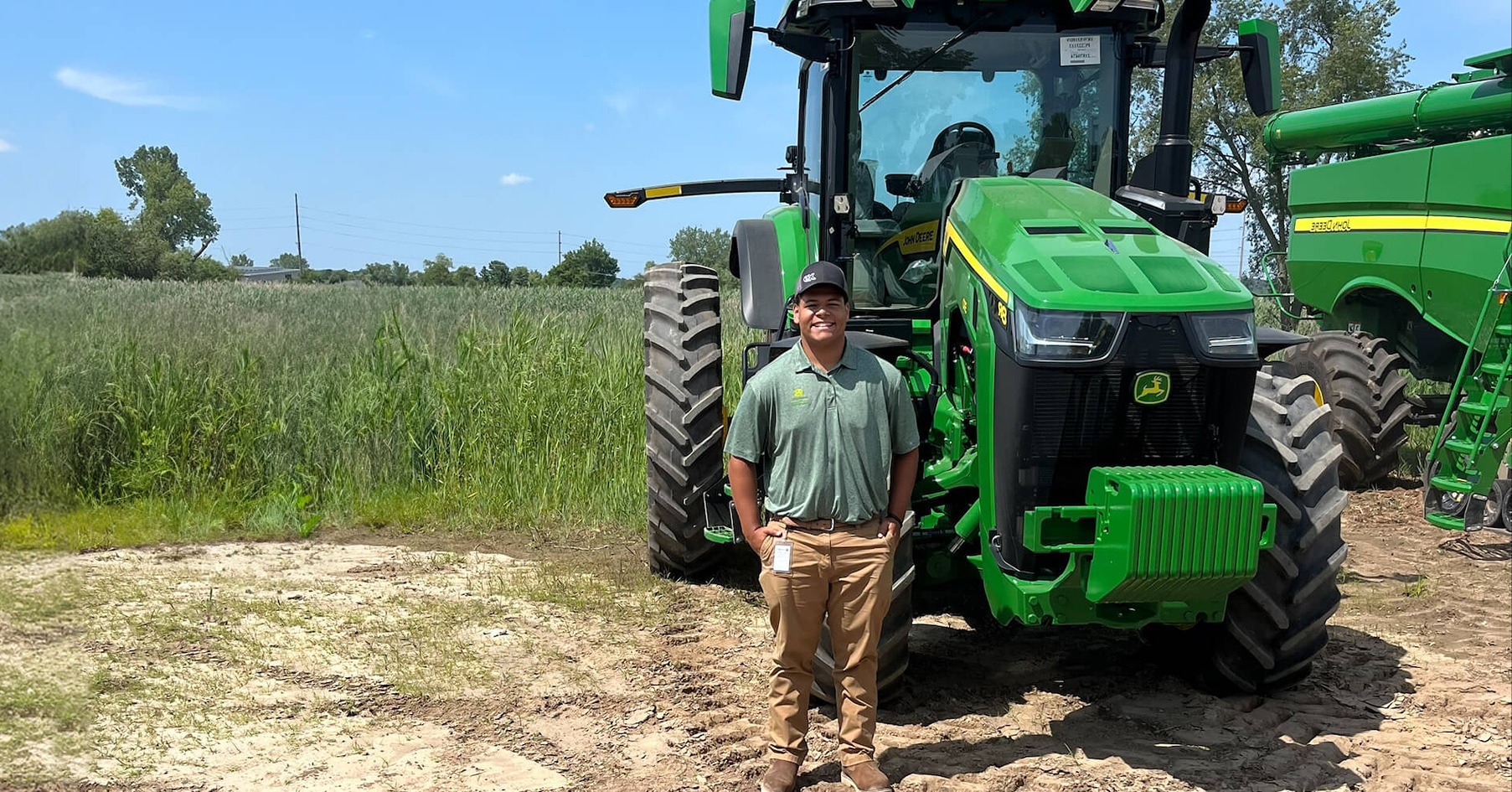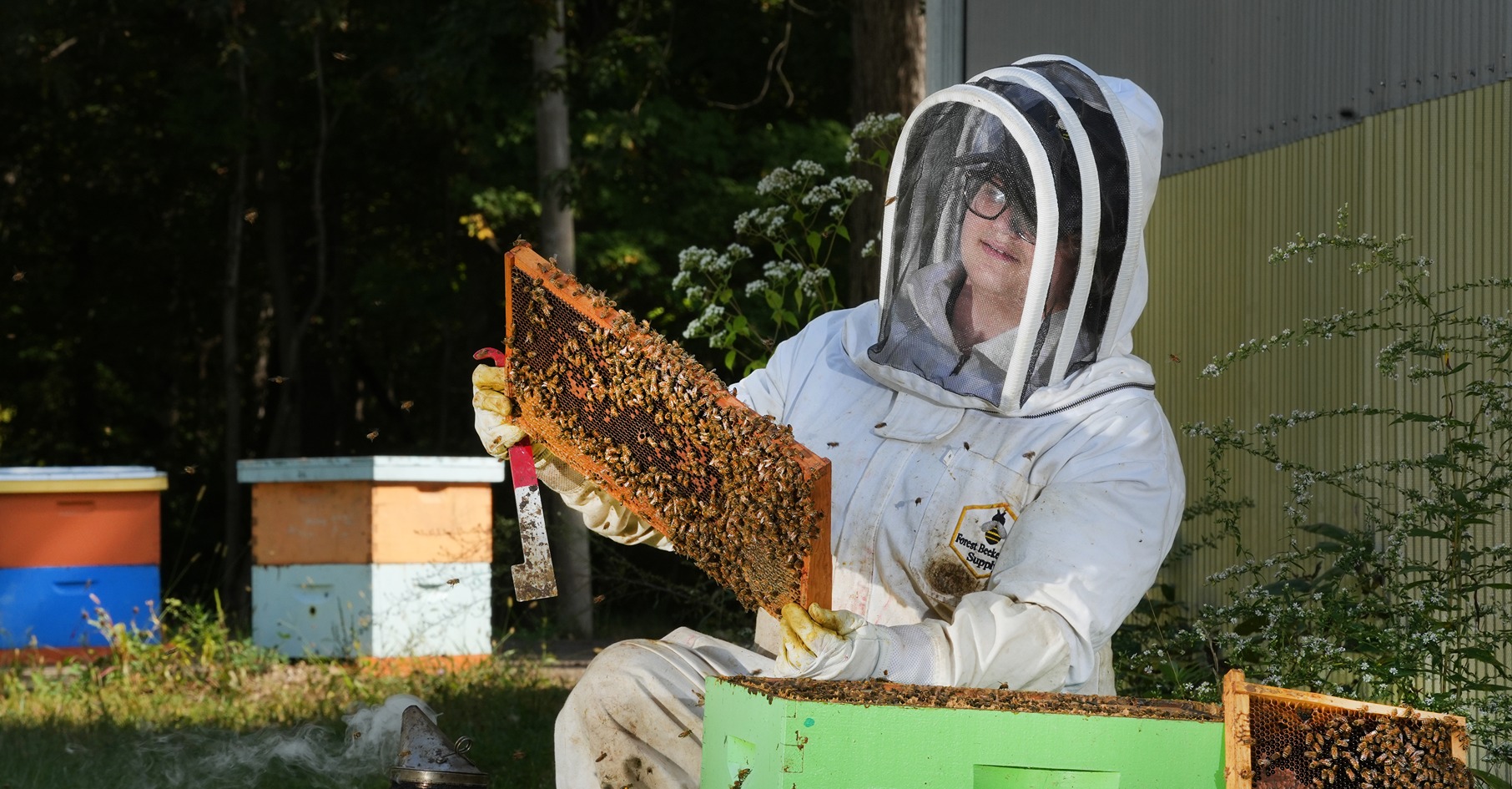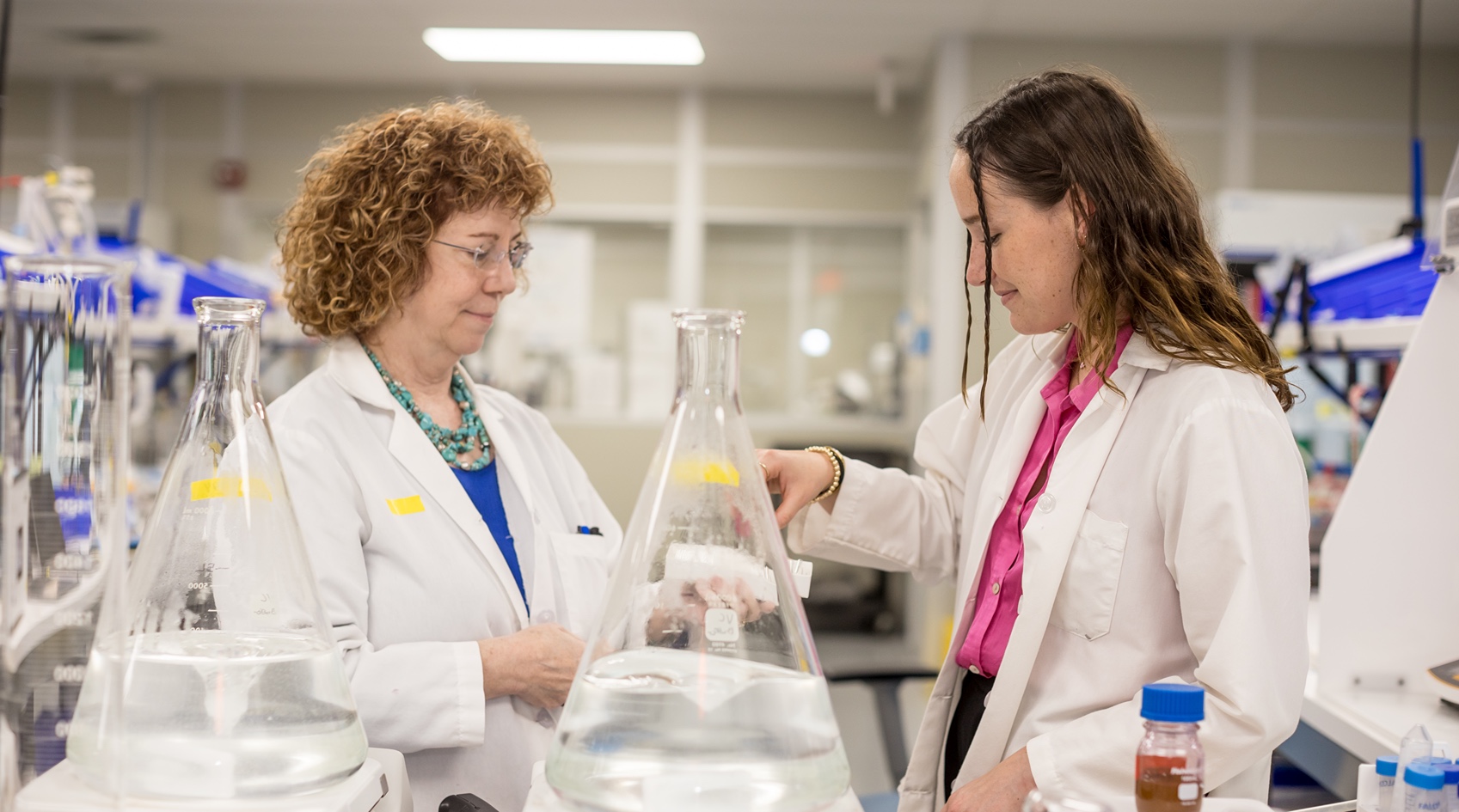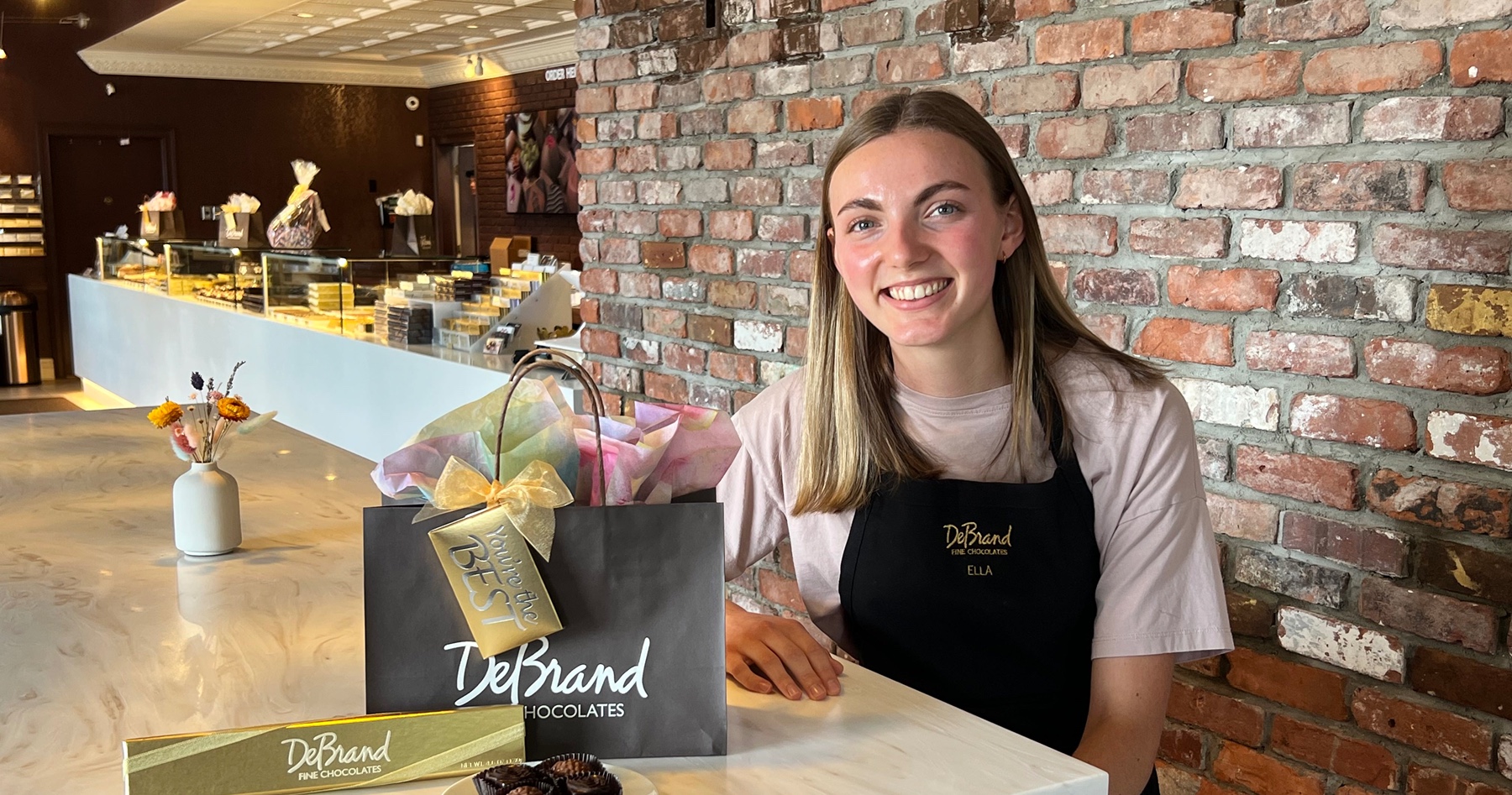Cultivating the Future: Isabel Jensen

From contamination to identification to restoration
In a parking lot littered with cracked ceramic floor tiles and shards of glass, a water pump rumbles to life. Isabel Jensen, clad in steel toe boots, eye protection and a fluorescent orange shirt, leans against a white truck, talking with her supervisor about the day’s project neutralizing contaminated material from under an empty lot. The removal may last a couple days to a couple weeks, but at the end of it, Jensen will have helped to restore the environment around the urban site.
Jensen, a natural resources and environmental science (NRES) major, works as a field tech intern for AP Engineering and Consulting (APEC). APEC is an environmental consulting firm, based in Greenfield, Indiana, that does work all across Indiana. APEC’s goal is to turn contaminated lots back into environmentally safe land or, as Jensen explained, “helping people figure out if there is contamination on their site, how bad it is and what to do about it.”
Jensen learned about environmental consulting as a possible career path through talking to past NRES graduates, and she knew she wanted to try it. Soon after, Jensen was able to get in contact with one of APEC’s managers, and they arranged an interview.
When Jensen interviewed with APEC, her NRES background helped her secure the position. “The interview went really well because my manager is an NRES grad,” Jensen said. “We had a lot in common, and he knew that I was getting a lot of the classes that I needed to get to understand what was going on. He knew that I'd be a good candidate.”
Now that she’s an intern, Jensen assists with APEC’s multi-step process to find and remove contamination. First, Jensen will research an assigned property. Research involves looking at past maps of the area, searching for records of reported contamination events and gathering any other available information. “Phase I environmental site assessment,” as Jensen calls this step, “is about determining if a site has a possibility of being contaminated or not.”
If APEC knows that contamination occurred or contamination seems possible, they will then move to groundwater sampling the site. This step is characterized by doing a limited subsurface (site) investigation (LSI). Multiple wells, each two inches in diameter, will be drilled around the site to allow access to groundwater. Then, Jensen can use a bailer (a PVC pipe on a string with a hole in the bottom to let water in and a marble to seal the hole on retrieval) to pull up groundwater from the wells for testing. The goal is to determine if contamination is present on the site.
If there is contamination, APEC then moves to doing a further subsurface (site) investigation (FSI), which looks at “how far does the contamination go” and “how bad is it,” according to Jensen.
The results of the test determine which treatment, if any, a property requires to be considered environmentally safe. This is called a remediation plan. At this point, APEC will hire a company to complete the removal. When the time for removal comes, APEC will remain on site to supervise and to monitor the groundwater’s contamination levels. Jensen gets to assist with the supervision and on-going testing at the site. Once the process is complete and the site is clean, APEC recommends “no further action.”
“The coolest part of my work is seeing everything flow together,” Jensen said. “It’s been interesting to see a full circle of consulting work. I like seeing how it all fits together and why you’re doing each step.”
Jensen also enjoys how many things she gets to work on in her internship. “I didn't expect there to be so many different kinds of jobs that we can do. When thinking about consulting, it’s hard to know really know what it is, but I was really interested to learn.”
Although Jensen’s work may not seem flashy, it is vital for the communities it impacts. Jensen explained, “You don't want to have a site, sell it off and have somebody come and build something and you're like, ‘Oh, no, we cannot build anything here. It's super contaminated.’”
Jensen plans to graduate in Spring 2025, but before that, Jensen wants more experience in other NRES fields. “I'm hoping next year maybe I can get something in industry to try different sections of the field and see what I like the most to make an informed decision when I graduate,” Jensen said.
Overall, Jensen has learned a lot about environmental consulting from her internship.People who don't work in the environmental field, don't think of environmental consulting as a job that environmental scientists can do. They're like, ‘Oh, you're going to go study climate change and be a researcher.’ But that's not the only path.
- Isabel Jensen

